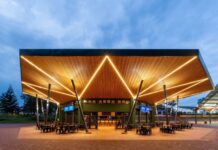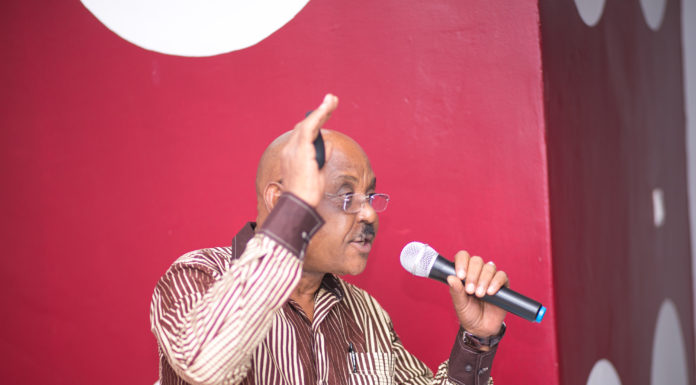|
AFAWA is supported by the Group of Seven (G7) countries, the Netherlands and Sweden
|
|
The African Development Bank Group (www.AfDB.org) President, Dr. Akinwumi A. Adesina, joined French President Emmanuel Macron and others at the Generation Equality Forum in Paris, where he highlighted the role of the Bank’s Affirmative Finance Action for Women in Africa (AFAWA) initiative in growing the continent’s women-led businesses.
“Women run Africa and they should run Africa…they create more businesses than men – but the problem they have is that they do not have access to finance,” Adesina said to a socially distanced audience that included heads of state and government, former US Secretary of State Hilary Clinton and other participants from the government, development, gender, civil society, and small and medium-enterprise (SME) sectors. President Adesina thanked President Macron for his leadership in supporting the African Development Bank to raise $450 million to start up AFAWA, the pan-African initiative that aims unlock financing to bridge the $42 billion financing gap women face in Africa. The Bank President was one of many participants invited to present at the Generation Equality Forum, a global gathering for gender equality, convened by UN Women and co-chaired by the presidents of France and Mexico. Moderating the African Development Bank president’s segment during the forum’s opening ceremony, French Minister of Europe and Foreign Affairs Jean-Yves Le Drian introduced President Adesina and Gisèla Van Houcke, the founder of a Kinshasa-based SME that received a loan from Rawbank’s “Lady’s First” program. Rawbank was the first financial institution to sign unto one of AFAWA’s programs. Van Houcke said: “In 2020, things became a lot more difficult as a result of the pandemic. The majority of our operations were closed down. Thanks to the AFAWA program, we managed to raise the funds that would allow us to survive during the time of Covid – to double our income, to hire more than 30 people, out of which 80% were women.” She told the audience that she started her Zuri Luxury hair and cosmetics business in 2015, selling wigs and weaves out of the back of a car. Van Houke benefited from Rawbank’s non-financial services, ranging from training in marketing, positioning, and general financial management. Non-financial services are another pillar of AFAWA, which also provides training and technical services, risk-sharing instruments, as well as an enabling environment to incentivize financial institutions to lend to more of Africa’s women entrepreneurs. The majority of Africa’s small and medium-sized businesses, especially in the informal sector, are women-led. However, financial institutions often lack the capacity to understand and respond appropriately to women entrepreneurs. Women entrepreneurs often lack the collateral or the financial and business acumen to respond to the needs of financial institutions. Adesina said: “Financial institutions basically discriminate against women. There is a high-risk premium women have to pay when they go to look for money. But women pay back their loans, 99 percent. So what we are really re-risking is bias against women.” AFAWA is supported by the Group of Seven (G7) countries, the Netherlands and Sweden. During his interaction with the African Development Bank president, the French foreign minister reaffirmed France’s support for the AFAWA initiative. Adesina also told the audience about the AFAWA Guarantee for Growth program, a de-risking mechanism facilitating women’s access to loans with lower collateral requirements. He said the Bank is working with the African Guarantee Fund to implement the program. Concluding his remarks, President Adesina told attendees that to receive African Development Bank funding, 100% of his institution’s projects and operations must demonstrate what they will do for women. “It’s just an issue of money – it’s about equity, it is about fairness, it is about respect,” Adesina said. For more about the African Development Bank’s AFAWA program, click here (https://bit.ly/3w7430t). |
Welcome!Log into your account















